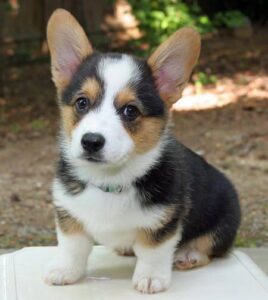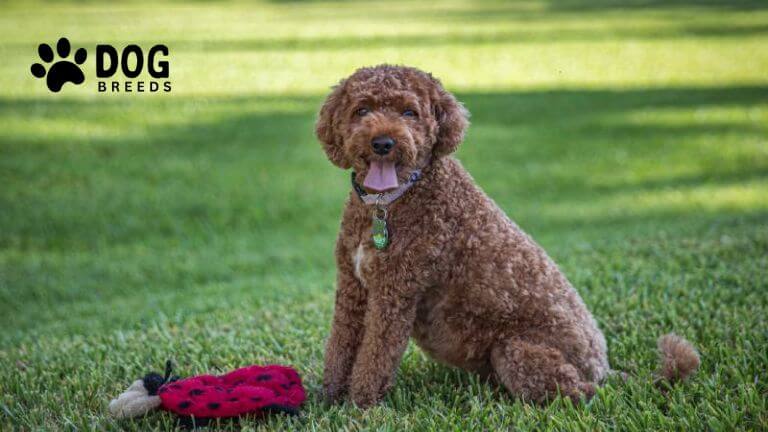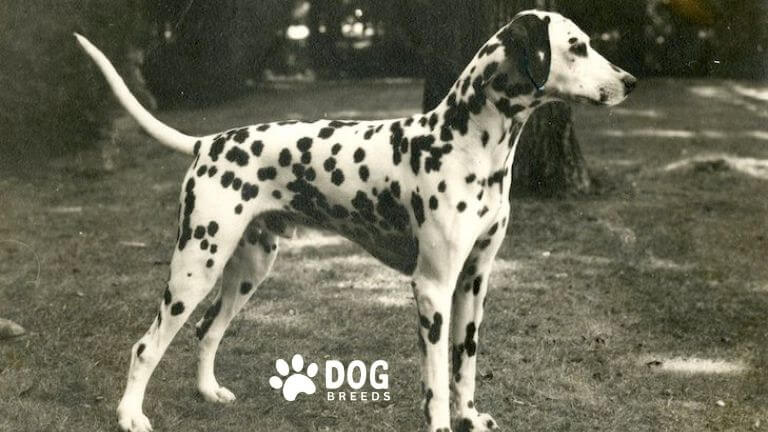Corgi Dog Breed: Traits, Care, Training & Health Guide
The Corgi is a small, lively, and affectionate dog breed that has captured hearts around the world. With its distinctive short legs and playful personality, it’s no wonder that the Pembroke Welsh Corgi is one of the most popular breeds in many households. Famous for its connection to the Royal Family—especially Queen Elizabeth II—this breed combines charm, intelligence, and a strong sense of loyalty. Whether you’re considering adopting a Corgi or just learning more about the breed, this guide will cover everything you need to know.

History of the Pembroke Welsh Corgi
The Pembroke Welsh Corgi originates from Wales, where it was traditionally used for herding cattle. These dogs were valued for their agility and hardworking nature. Over time, Corgis became famous not just for their work ethic but for their fun-loving, easygoing temperament. Their close relationship with the Royal Family further popularized the breed, with Queen Elizabeth II owning several Corgis throughout her life.
Appearance: What Does a Corgi Look Like?
Size and Shape
Corgis are small, compact dogs with long bodies and short legs. They typically weigh between 25 to 30 pounds and stand about 10 to 12 inches tall at the shoulder. Despite their short stature, Corgis are muscular and sturdy, built for agility and quick movements.
Coat and Colors
Corgis have a thick, double-layered coat. The outer coat is straight, while the undercoat is soft and dense, offering protection in colder weather. The breed’s coat can come in several colors, including:
- Red
- Fawn
- Black and tan
- Sable
- Blue merle (rare)
Some Corgis also have white markings on their chest, legs, and face, adding to their charming appearance.
Distinguishing Features
The most recognizable feature of the Corgi is its short, stubby legs and long body. Their ears are large, erect, and triangular, and their tail is typically docked (though some may have a natural tail, depending on the breeder or country). Their expressive eyes are usually dark and alert, reflecting the breed’s active and intelligent nature.
Temperament: What Are Corgis Like?
Personality Traits
Corgis are known for their loyalty, intelligence, and playfulness. They are highly social dogs that enjoy being part of family activities and are good companions. Although they are small, they are full of energy and can be surprisingly confident.
Behavioral Quirks
Corgis have a strong herding instinct, which may lead them to try to herd other pets, children, or even adults. They often do this by nipping at heels or chasing. While this behavior can be controlled with training, it’s important to recognize this instinct when interacting with them.
Compatibility with Families and Other Pets
Corgis are excellent family pets and typically get along well with children. Their friendly, playful nature makes them a great addition to households with active families. They also tend to do well with other pets, particularly if they are raised together. Still, their herding behavior may sometimes cause issues with other animals, especially smaller pets like cats or rabbits.
Health: What Health Issues Do Corgis Face?
Common Health Concerns
Like many dog breeds, Corgis are prone to specific health conditions. Some of the most common include:
- Hip Dysplasia: A genetic condition that affects the hip joints.
- Degenerative Myelopathy: A progressive disease affecting the spinal cord, leading to mobility issues.
- Obesity: Due to their high energy levels and love for food, Corgis can easily become overweight if not properly managed.
- Intervertebral Disc Disease (IVDD): Given their long bodies, Corgis are at higher risk of spinal problems, especially disc herniation.
Lifespan
Corgis have an average lifespan of 12 to 15 years, which is typical for small dog breeds. With proper care, they can live long, healthy lives.
Preventative Care
Regular vet check-ups, a balanced diet, and regular exercise are key to maintaining Corgi’s health. Preventative measures like vaccination, dental care, and flea and tick prevention should be a part of their routine.
Care Needs: How to Take Care of a Corgi
Grooming
Corgis are moderate shedders due to their thick double coat. They shed heavily twice a year—during the spring and fall—so regular grooming is essential. Brushing at least once a week helps reduce shedding and keeps their coat healthy. During shedding seasons, daily brushing may be required.
Additionally, Corgis need their ears cleaned and nails trimmed regularly. Bathing should be done as needed, but over-bathing can strip their coat of essential oils.
Diet and Nutrition
Corgis require a balanced diet that is appropriate for their size, age, and activity level. Their food should be high-quality, with lean protein sources and a good balance of fats and carbohydrates. Due to their propensity for obesity, it’s essential to avoid overfeeding them. Many owners choose to feed their Corgis a portion-controlled diet to maintain a healthy weight.
Exercise
While they are small, Corgis are active and need daily exercise to stay healthy and happy. A minimum of 30 to 60 minutes of physical activity, such as walks, playtime, or short training sessions, is necessary. Corgis also enjoy agility activities, which can help burn off their energy while providing mental stimulation.
Seasonal Considerations
Corgis are suited for colder climates because of their thick coat. In warmer weather, they may be prone to overheating, so it’s essential to ensure they have access to water and shade. Avoid walking them during the hottest parts of the day, especially in summer.
Training Tips: How to Train a Corgi
Obedience Training
Corgis are intelligent and eager to please, which makes them highly trainable. However, they can also be independent and stubborn, so consistent, positive reinforcement training is essential. Start training early with simple commands like sit, stay, and come. Using treats and praise as rewards works well to motivate them.
Socialization
Socializing your Corgi early on is crucial to prevent behavioral issues. Introduce them to a variety of people, environments, and other animals to ensure they grow into well-rounded dogs. Socialization helps reduce their herding instincts and makes them more adaptable to different situations.
Managing Herding Behavior
As natural herders, Corgis may try to herd children or other pets. While this behavior is typical, it can be managed with proper training. Redirecting their attention and providing alternative activities, such as fetching or agility training, can help minimize unwanted herding behavior.
Conclusion
In conclusion, the Corgi is a delightful and spirited breed that brings joy and companionship to families around the world. With their distinctive appearance, playful temperament, and strong loyalty, they make excellent pets for individuals and families alike. While potential owners should be mindful of their specific health concerns and grooming needs, the rewards of having a Corgi—such as their affectionate nature and intelligence—far outweigh the challenges. By providing proper care, training, and attention, you can ensure a happy, healthy life for your Corgi, making them a cherished member of your family for many years to come.
There are plenty of dog breeds to suit all kinds of lifestyles and homes. With a little research, you can find your next best friend!
Relate: Cavalier King Charles Spaniel Dog
FAQ:
Are Pembroke Welsh Corgis good with children?
Yes, Corgis are great with children. They are playful and affectionate, and they love being part of family activities. However, as herding dogs, they may try to herd young children, which can result in nipping or chasing. Early training can help manage this behavior.
How much exercise does a Corgi need?
Corgis require at least 30 to 60 minutes of exercise daily. This can include walks, playtime, and training sessions. Active Corgis may enjoy agility courses or interactive games to burn off extra energy.
Do Corgis shed a lot?
Yes, Corgis shed regularly due to their double coat. They shed more heavily during the spring and fall, but regular grooming can help manage the shedding. Daily brushing during the shedding season is recommended.
Are Corgis easy to train?
Corgis are intelligent and eager to please, making them relatively easy to train. However, they can also be independent, so consistent training with positive reinforcement is important. Early socialization and obedience training will help them develop into well-behaved pets.
What is the lifespan of a Corgi?
The average lifespan of a Corgi is 12 to 15 years. With proper care, including a balanced diet, regular exercise, and routine vet check-ups, they can live long, healthy lives.
Are Corgis expensive?
Yes, Corgis can be expensive, with prices typically ranging from $1,000 to $3,000 depending on factors like the breeder’s reputation, location, and whether the dog is show-quality or pet-quality. Purebred Pembroke Welsh Corgis, especially those with royal lineage or champion bloodlines, tend to cost more. Additionally, ongoing expenses like grooming, food, and veterinary care can add to the cost of owning a Corgi.
Is Corgi a good family dog?
Yes, Corgis are excellent family dogs. They are known for being loyal, affectionate, and playful. Their friendly temperament makes them a great fit for families with children. Corgis enjoy being part of family activities and are typically good with other pets, although early socialization is key to ensuring they get along well with both humans and animals. Their intelligence and high energy make them active companions for families who enjoy outdoor activities.
Can Corgis be left alone?
Corgis are social dogs that prefer to be around their family members. While they can tolerate being alone for short periods, they may become bored and anxious if left for too long. Corgis can develop separation anxiety, especially if they’re used to being with people frequently. To prevent destructive behavior, it’s important to provide mental stimulation, toys, and a safe space when leaving your Corgi alone.
What two breeds make a Corgi?
Corgis are believed to be a cross of two breeds: the Cardigan Welsh Corgi and the Pembroke Welsh Corgi. They both share a similar appearance but have some distinct differences, including coat color, ear shape, and personality traits. Corgis are descendants of herding dogs brought to Wales by Flemish weavers over a thousand years ago.
What is the most expensive dog?
The Tibetan Mastiff is widely considered the most expensive dog in the world. Some individuals have sold for as much as $2 million due to their rarity and status as a luxury pet. Other expensive breeds include the Samoyed, Chow Chow, and Chihuahua, but the Tibetan Mastiff remains the highest-priced dog on record.
Is Corgi a rare dog?
Corgis are not considered rare, but they are not as common as some other breeds. The Pembroke Welsh Corgi is more popular and widely recognized, especially due to its connection with the Royal Family. However, the Cardigan Welsh Corgi is less common and is considered rarer. In general, Corgis are relatively easy to find in the United States, but demand can fluctuate based on trends.
Do Corgis bark a lot?
Corgis can be vocal and do tend to bark, especially when alerting their owners to activity or intruders. As herding dogs, they have a strong instinct to guard and protect, which may lead to barking when they feel the need to defend their space. Early training and socialization can help minimize excessive barking, but it’s important to understand that barking is part of their nature.
What is the best family dog?
The Labrador Retriever is widely considered the best family dog due to its gentle nature, intelligence, and adaptability. Other top family dogs include the Golden Retriever, Beagle, and Cavalier King Charles Spaniel. Corgis are also a popular choice for families because of their affectionate and playful personalities. Still, the Labrador tends to top the list for its easygoing nature and compatibility with children.
Is Corgi smart or not?
Corgis are considered very intelligent dogs. They rank in the top 20 for most intelligent dog breeds. Corgis excel in obedience and are quick learners, especially when motivated by treats or praise. Their intelligence, however, can also make them independent, which may lead to stubbornness if they are not trained properly. Early obedience training and socialization are essential to ensure Corgis grows into a well-behaved pet.
What do Corgis eat?
Corgis require a balanced, high-quality diet tailored to their age, weight, and activity level. A typical Corgi diet consists of:
- Lean protein (chicken, turkey, or lamb)
- Whole grains (brown rice, oats)
- Vegetables (carrots, peas)
- Healthy fats (omega-3 fatty acids) Corgis should be fed high-quality dry dog food or wet food that provides all the necessary nutrients. Due to their tendency to gain weight, portion control is important to avoid obesity.
What is the smartest dog?
The Border Collie is generally considered the smartest dog breed. It is known for its incredible ability to learn commands quickly, problem-solve, and follow directions. Other highly intelligent breeds include the Poodle, German Shepherd, and Golden Retriever. Corgis are also considered smart, ranking high in intelligence, particularly in problem-solving and learning commands.
What is the rarest dog?
The Chow Chow, Stabyhoun, and Norwegian Lundehund are considered some of the rarest dog breeds in the world. The Norwegian Lundehund is particularly rare because it has only six toes on each foot and is known for its ability to climb and navigate rocky terrains. These breeds are rare due to their specific genetic traits and limited breeding populations.
- Why Are Dalmatians Not Popular? Uncovering the Truth Behind the Rarity of This Iconic Breed - April 16, 2025
- Top 15 Chinese Dog Breeds: Discover the Best Dogs from China - April 14, 2025
- Dalmatian Dog Breed: History, Care, Personality & Health - April 3, 2025







